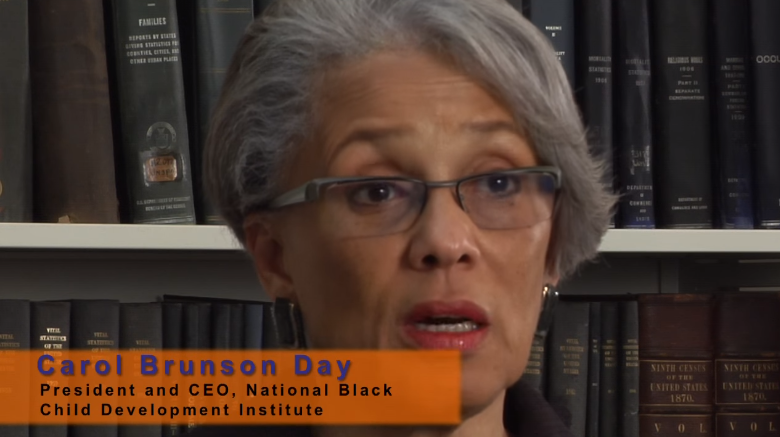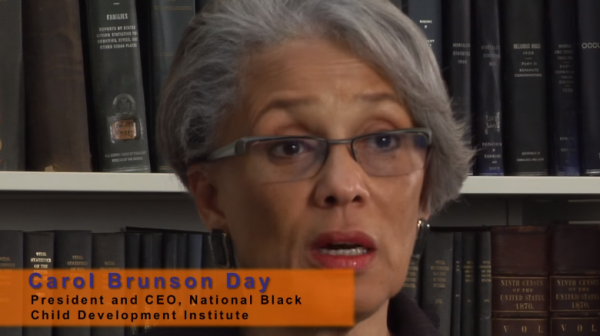Abortion rights, women of color, and LGBTQIA+ people are under attack. Pledge to join us in fighting for gender justice.
Black Women Built That: Dr. Carol Brunson Day and a Legacy in Early Childhood Education


In continuing the “Black Women Built That” blog series, we celebrate the Black women who have built and are continuing to lead the children and women’s advocacy movement.
Supporting child development demands that we support their parents and the teachers who support them. This Black History Month, we are celebrating Dr. Carol Brunson Day, who has dedicated her life to serving children through rectifying systematic disparities in the early childhood education workforce.
Dr. Day was born in Chicago, Illinois into to a family of passionate educators. Dr. Day credits her mother, a public elementary school teacher, as the force behind her life’s work focusing on increasing supports for the early childhood workforce. After receiving her B.A. in Psychology from the University of Wisconsin- Madison, Dr. Day attended the Erikson Institute in Chicago where she received her master’s in early childhood education. There she learned from Dr. Barbara Bowman about the importance of teachers being trained in child development, not just curriculum. Her first job was working at Pacific Oaks Community College in a lab school and teaching child development to teachers.
Dr. Day entered the field driven by a “strong desire for all children to have the childhood [she] had”, an upbringing that was intimately shaped by passionate educators. Early in her career, this desire led her to balance her responsibility to future educators in the classroom, with her responsibility to make lasting social change in the field. “Being in the classroom made me realize that I also wanted to be in the space where the decisions about teachers, institutional welfare, and institutional practices were made,” Dr. Day recounted, “If you think about the social context and activism at that time, it called on people to think big for social change. I naturally gravitated towards those opportunities”.
These opportunities included her 20 years as the CEO and President of the Council for Professional Recognition, the home of the Child Development Associate National Credentialing Program; her time as President of the National Black Child Development Institute, her tenure as President of NAEYC, and her role on the T.E.A.C.H. Early Childhood Technical Assistance Center National Advisory Panel. In reflecting on her opportunities to break into the early childhood field as a leader, Dr. Day expressed a deep desire to be a legitimate voice on equity and inclusion. She has worked tirelessly with data and scholars throughout her career to clearly outline existing disparities around race in the early childhood field and to develop strategies to remedy these disparities.
Dr. Day’s reflections on her career brought her back to Pacific Oaks where she found her voice around equity and inclusion. As a Quaker institution, Pacific Oaks operated on the fundamental assumption that every human being has a right to be respected. While inspired by that message, Dr. Day noted that there also needed to be an acknowledgement of the unique social contexts of each person. Simply put, Dr. Day asserted that “We cannot practice child development without being responsive to bias and social contexts”. In her work to remedy the challenges that women of color in the early childhood workforce and the families of color being served face, Dr. Day also realized the importance of fostering partnerships with other communities affected by the same issues in child care.
To continue her legacy, Dr. Day reminds us that it is critically important to participate in activism on all that impact children and their families. “Young people, especially in the early childhood workforce, have a responsibility to engage with other causes so that they may understand other circumstances that influence the social context of those they serve.” Her guidance makes it abundantly clear that she still prioritizes being a mentor to others in this field in gratitude to her former mentors. We salute Dr. Day for her career steeped in a love for children, passion for equity and diversity, relentless gratitude towards those who shaped her life and her work, and her legacy to empower the early childhood workforce and create healthy and strong childhoods for all.
